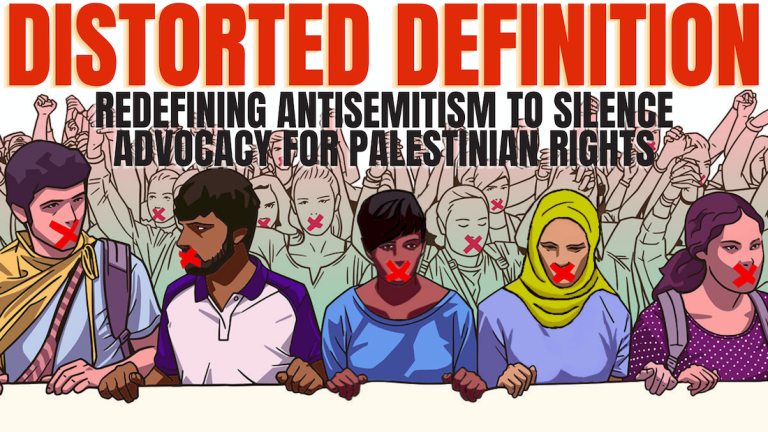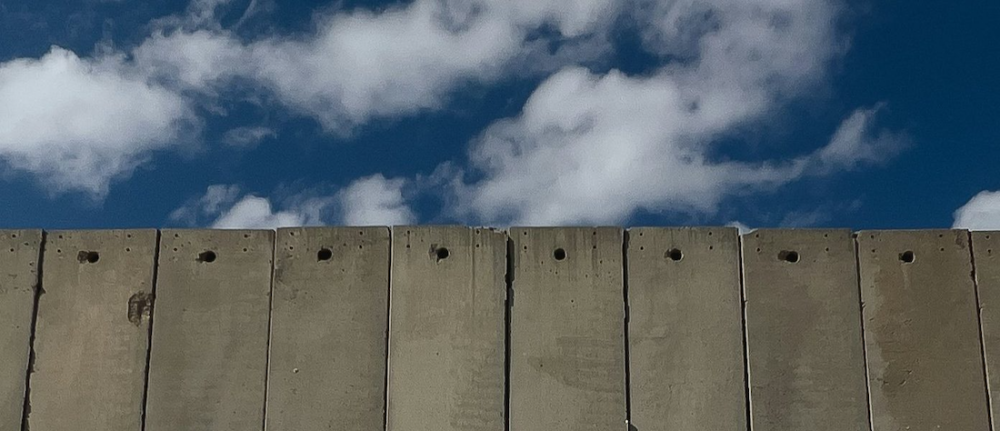
New York, N.Y. — A growing coalition of civil rights organizations, legal experts, and student advocates is raising alarms over the use of a “distorted definition” of antisemitism that, they argue, is being weaponized to suppress advocacy for Palestinian rights in the United States.

At the center of this controversy is the International Holocaust Remembrance Alliance (IHRA) working definition of antisemitism, which critics say conflates legitimate criticism of Israeli government policies with anti-Jewish hate, leading to widespread censorship and repression.
Since 2014, Palestine Legal has documented over 1,700 incidents in which individuals and groups advocating for Palestinian freedom have faced false accusations of antisemitism—more than half of all suppression cases the organization has handled in that period. These incidents range from students being censored or disciplined on campus, to church groups and activists facing smear campaigns for supporting boycotts or calling attention to human rights abuses in the region.
The push to codify the IHRA definition into U.S. law and institutional policy has intensified in recent years, particularly following the escalation of violence in Gaza and the resulting surge in advocacy for Palestinian rights.
According to Palestine Legal, this effort is part of a broader strategy by Israel lobby groups to shield Israel from criticism by branding nearly all support for Palestinian rights as antisemitic. Seven out of the eleven examples of contemporary antisemitism cited in the IHRA definition focus specifically on Israel, blurring the line between anti-Jewish bigotry and political speech.

Civil rights advocates warn that the adoption of the IHRA definition has already had a chilling effect on free speech, especially on college campuses. Palestinian-American students and their allies have reported being doxxed, harassed, and punished for expressing support for Palestinian rights, with universities often justifying their actions by referencing the IHRA definition.
In a recent coalition letter to the Department of Education’s Office for Civil Rights (OCR), Palestine Legal and 13 other organizations urged the agency to reject the codification of the IHRA definition, arguing that it would only intensify anti-Palestinian racism and undermine First Amendment protections.
The letter also draws parallels between efforts to codify the IHRA definition and right-wing campaigns to ban Critical Race Theory, noting that both are driven by similar groups and serve to restrict academic freedom and the ability to address systemic oppression.
“OCR must reject right-wing lobbying efforts that seek to address one form of racism while perpetuating another,” said Lina Assi, Advocacy Manager at Palestine Legal.
“The codification of the distorted IHRA definition will only serve as a tool of repression that will intensify the anti-Palestinian racism that activists and students are currently experiencing across the country.”
Despite these challenges, there is growing resistance to the IHRA definition.
Academics, activists, and even some Jewish organizations have proposed alternative definitions, such as the Jerusalem Declaration on Antisemitism, which seeks to clarify the distinction between antisemitism and legitimate criticism of Israel. These efforts aim to protect the rights of all marginalized groups and ensure that advocacy for Palestinian freedom is not mischaracterized as hate speech.

Palestine Legal’s interactive timeline and resource hub document the evolution of the distorted definition, its impact on individuals, and the ongoing efforts to push back against censorship.
The organization emphasizes that advocacy for Palestinian rights is a form of human rights work that should be celebrated, not silenced. As Dima Khalidi, director of Palestine Legal, stated, “We must expose and counter the false narrative that attempts to tar and silence human rights defenders in order to shield Israel from criticism and accountability.”
As the debate continues, advocates are calling on policymakers, educators, and the public to recognize the dangers of conflating criticism of a nation-state with bigotry against a people, and to uphold the fundamental rights of those working for justice and equality in Palestine and beyond.
#DistortedDefinition #PalestinianRights #FreeSpeech
#AcademicFreedom #HumanRights #StopCensorship
#PalestineAdvocacy #CivilRights #RejectIHRA #IHRA
Tags: civil rights, Palestinian rights, antisemitism, IHRA definition, free speech,
campus activism, censorship, human rights, Palestine Legal, student advocacy,
U.S. policy, Department of Education, academic freedom, anti-Palestinian racism
